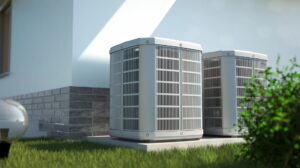 We talk a lot about getting air conditioner maintenance on this blog. To give ourselves a little bit of credit, we do live in Florida, and air conditioners are run into the ground from all the heavy use if they aren’t maintained properly. AC maintenance is the first line of defense against costly repairs, issues of a shortened lifespan, and other problems that could be potentially devastating for your air conditioner and your wallet.
We talk a lot about getting air conditioner maintenance on this blog. To give ourselves a little bit of credit, we do live in Florida, and air conditioners are run into the ground from all the heavy use if they aren’t maintained properly. AC maintenance is the first line of defense against costly repairs, issues of a shortened lifespan, and other problems that could be potentially devastating for your air conditioner and your wallet.
However, there is more to air conditioner maintenance than meets the eye. AC maintenance in Gainesville, FL can be the key to saving you money in other aspects as well. Other contractors don’t often mention these hidden benefits because they bank on homeowners forgoing maintenance and calling them back in a few years for an early replacement. With us, we want homeowners to think of AC maintenance as the necessary tool it is.


 Let’s face it, we put a lot of strain on our air conditioners throughout the year. We marvel at the fact that our northern neighbors have air conditioners that are 20 years old, while ours can barely manage 15 with the sheer amount of cooling they’re tasked with doing. It’s so important that everyone in our area who has the luxury of utilizing an air conditioner’s warranty keep doing so for as long as possible.
Let’s face it, we put a lot of strain on our air conditioners throughout the year. We marvel at the fact that our northern neighbors have air conditioners that are 20 years old, while ours can barely manage 15 with the sheer amount of cooling they’re tasked with doing. It’s so important that everyone in our area who has the luxury of utilizing an air conditioner’s warranty keep doing so for as long as possible. It’s that time of year again! Another brutal summer has come and gone, and while we might still be dealing with a few hot days to come, the worst of it is over. So, how exactly did your air conditioner do? If you’re unsure as to how to answer that question, then don’t worry, we’ve got the solution for you. It’s time to give your air conditioner the grade it deserves!
It’s that time of year again! Another brutal summer has come and gone, and while we might still be dealing with a few hot days to come, the worst of it is over. So, how exactly did your air conditioner do? If you’re unsure as to how to answer that question, then don’t worry, we’ve got the solution for you. It’s time to give your air conditioner the grade it deserves! There are plenty of scenarios that can happen when you turn your heater on for the first time this season. It can come on without a hitch and act like it did last season, which is the best possible outcome. It can turn on with some minor problems that make you raise your eyebrow high. Or, it could not even turn on at all—signaling something sinister at the bottom of it.
There are plenty of scenarios that can happen when you turn your heater on for the first time this season. It can come on without a hitch and act like it did last season, which is the best possible outcome. It can turn on with some minor problems that make you raise your eyebrow high. Or, it could not even turn on at all—signaling something sinister at the bottom of it. We are always baffled by homeowners who think their family member can install a new air conditioner. With how expensive, important, and complicated these systems are, it’s always a bad idea to have someone that’s not licensed and certified perform this type of work. Notice how we didn’t say sometimes, we said always.
We are always baffled by homeowners who think their family member can install a new air conditioner. With how expensive, important, and complicated these systems are, it’s always a bad idea to have someone that’s not licensed and certified perform this type of work. Notice how we didn’t say sometimes, we said always.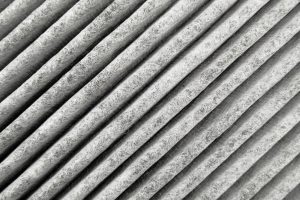 Air conditioners have air filters that are meant to keep dust and debris out. This isn’t just for our own personal health, although it doesn’t hurt, it’s supposed to keep the coils of your AC clean from contaminants. Contaminants can cause the coil to become damaged which would ruin the effectiveness and efficiency of your cooling. So, long story short—replace your air filter today!
Air conditioners have air filters that are meant to keep dust and debris out. This isn’t just for our own personal health, although it doesn’t hurt, it’s supposed to keep the coils of your AC clean from contaminants. Contaminants can cause the coil to become damaged which would ruin the effectiveness and efficiency of your cooling. So, long story short—replace your air filter today!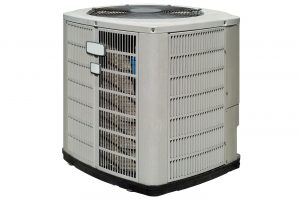 Back in the day, all you needed was a window unit air conditioner and a family friend to help you install it. While we might remember those days with fond nostalgia, the way we dealt with heat was pretty pathetic. When the worst heatwaves hit us, we’d just have to deal with it or suffer the exorbitant energy bills to come while our window units barely cooled our homes down. Luckily, we don’t live in this world anymore.
Back in the day, all you needed was a window unit air conditioner and a family friend to help you install it. While we might remember those days with fond nostalgia, the way we dealt with heat was pretty pathetic. When the worst heatwaves hit us, we’d just have to deal with it or suffer the exorbitant energy bills to come while our window units barely cooled our homes down. Luckily, we don’t live in this world anymore.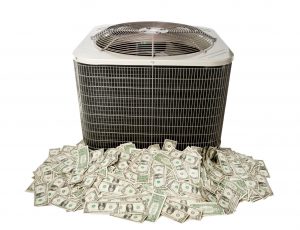 Air conditioners, while being durable and able to last far into their second decade of life, are delicate on the inside. It’s always a bad idea as a homeowner to open up your air conditioner and take a look inside. This can void your system’s warranty and also make things worse since only a trained and certified HVAC technician has the tools and experience to make sure nothing is broken or scratched when taking a look inside.
Air conditioners, while being durable and able to last far into their second decade of life, are delicate on the inside. It’s always a bad idea as a homeowner to open up your air conditioner and take a look inside. This can void your system’s warranty and also make things worse since only a trained and certified HVAC technician has the tools and experience to make sure nothing is broken or scratched when taking a look inside.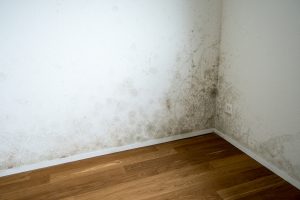 Whether it’s getting rid of mold, keeping yourself comfortable, or reducing odors, dehumidification is a process that can be extraordinarily helpful for homeowners. While we know that dehumidifiers are important during our extremely muggy summers here in Florida, we don’t necessarily get the time to focus on the other benefits that come from such a system.
Whether it’s getting rid of mold, keeping yourself comfortable, or reducing odors, dehumidification is a process that can be extraordinarily helpful for homeowners. While we know that dehumidifiers are important during our extremely muggy summers here in Florida, we don’t necessarily get the time to focus on the other benefits that come from such a system.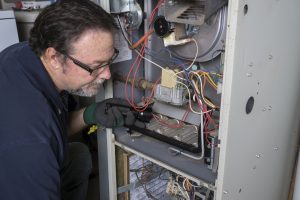 There’s been a bit of warm weather to give us some time outside in the past week, but that’s no excuse to neglect our heaters for the days when temperatures drop below where we’d like them to be. That’s because
There’s been a bit of warm weather to give us some time outside in the past week, but that’s no excuse to neglect our heaters for the days when temperatures drop below where we’d like them to be. That’s because 




